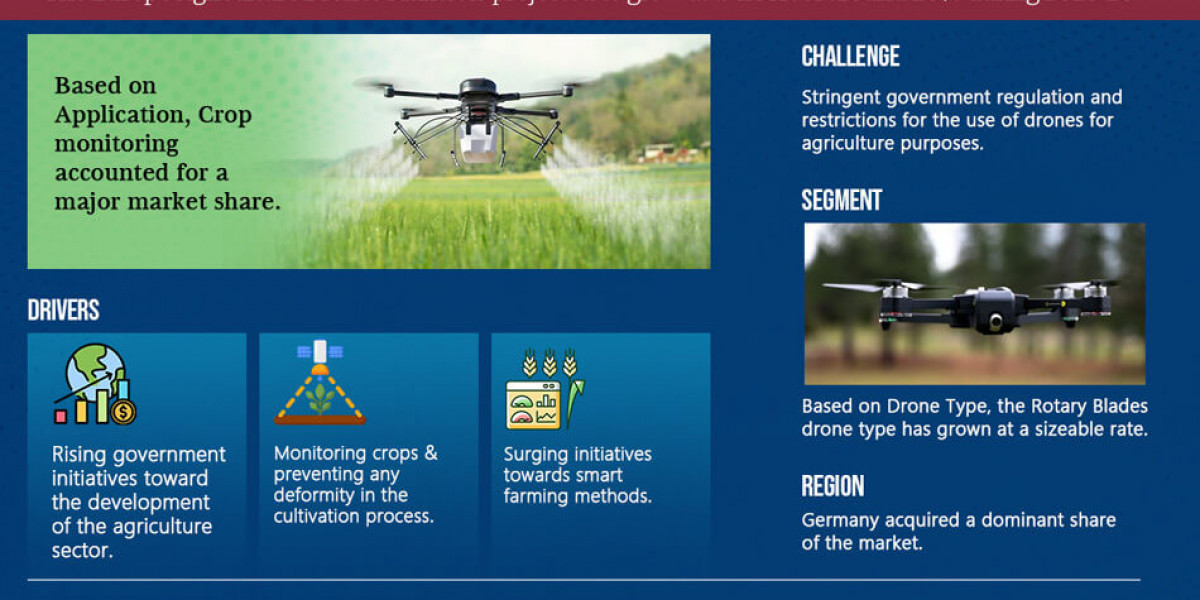The United Arab Emirates (UAE) oil and gas market is one of the most important in the world, driven by the country's vast reserves of hydrocarbons and its status as a key player in global energy markets. The UAE has long been a major oil exporter, and its oil and gas sector remains the backbone of the national economy, providing a significant share of government revenues and employment. As the UAE continues to diversify its economy under its Vision 2021 and 2030 development plans, the oil and gas market continues to evolve, with a focus on increasing production capacity, investing in new technologies, and expanding into renewable energy. Despite global pressures toward sustainability, the United Arab Emirates oil and gas market remains pivotal to the country’s growth, energy security, and geopolitical influence.
Market Overview
The UAE is one of the world's largest producers and exporters of oil, with significant reserves concentrated mainly in Abu Dhabi. The UAE's oil and gas market is characterized by a mature infrastructure for exploration, production, refining, and distribution, along with an expanding focus on sustainable energy solutions. Oil production in the UAE is concentrated primarily in the Emirate of Abu Dhabi, which holds over 90% of the country's crude oil reserves. As a member of the Organization of the Petroleum Exporting Countries (OPEC) and the International Energy Agency (IEA), the UAE plays a significant role in shaping global oil prices and energy policies.
The UAE oil and gas market is transitioning in response to changing global energy dynamics, including fluctuating oil prices, the rise of alternative energy sources, and growing concerns about climate change. However, oil and gas will continue to be vital to the UAE’s economy for the foreseeable future. The government is also focusing on leveraging its energy resources to further economic diversification, exploring new upstream and downstream opportunities, and promoting natural gas as a cleaner energy alternative.
Key Drivers of the UAE Oil and Gas Market
Several factors contribute to the growth and continued importance of the UAE oil and gas market:
Large Hydrocarbon Reserves: The UAE has some of the world's largest oil and gas reserves, with the majority of crude oil reserves located in the Emirate of Abu Dhabi. This gives the UAE significant influence over global oil prices and makes it a key player in the energy sector. The exploration and development of new reserves are critical to maintaining production levels and ensuring long-term energy security.
Strategic Geopolitical Position: The UAE is strategically located between key energy-consuming regions, such as Europe, Asia, and the Middle East, giving it a critical role in the global oil supply chain. The country has invested heavily in port and pipeline infrastructure, ensuring it remains a key energy exporter to international markets.
Ongoing Oil and Gas Investments: The UAE government has continued to invest in enhancing oil production capacity and improving infrastructure. Ongoing projects such as the Upper Zakum and Bu Hasa oil fields are key to boosting output. At the same time, the government is also focusing on improving oil extraction and refining technologies, ensuring that the UAE maintains a competitive edge in the global market.
Diversification of Energy Sources: As part of its vision for economic diversification, the UAE is increasing its investments in clean energy and renewable resources like solar and nuclear energy. However, the country remains committed to maintaining and expanding its oil and gas industry while also aligning with global sustainability goals.
Oil Production and Reserves in the UAE
The UAE is ranked as the seventh-largest oil producer in the world and is a leading member of OPEC. According to estimates, the country’s proven oil reserves are approximately 98 billion barrels, concentrated primarily in Abu Dhabi. The UAE’s national oil company, Abu Dhabi National Oil Company (ADNOC), is one of the largest integrated oil and gas companies globally, managing the exploration, production, and distribution of crude oil, natural gas, and refined products.
1. Crude Oil Reserves and Production
Abu Dhabi holds the lion’s share of the UAE's crude oil reserves, with key fields such as Upper Zakum, Lower Zakum, Bab, and Bu Hasa contributing significantly to the country’s output. The UAE has an oil production capacity of about 3.5 million barrels per day (bpd) and aims to increase this figure through enhanced oil recovery (EOR) techniques, new exploration, and technological innovations. ADNOC is leading efforts to explore new reservoirs and improve recovery rates from mature fields, ensuring that production remains at competitive levels.
2. Natural Gas Reserves and Production
In addition to oil, the UAE is also a significant producer of natural gas, primarily located in the Abu Dhabi emirate. The country is working to meet domestic energy demand by boosting natural gas production, as the UAE is a major importer of liquefied natural gas (LNG) to supplement local supply. With large reserves of non-associated gas in fields like Shah, Habshan, and Bab, the UAE is positioning itself as an emerging player in global natural gas markets.
3. Refining and Petrochemicals
The UAE has extensive refining capacity, with key facilities operated by ADNOC and other private players. The country is also becoming a hub for petrochemical production, processing crude oil and natural gas into value-added products like plastics, chemicals, and fertilizers. ADNOC’s Ruwais Refinery, one of the largest refineries in the region, plays a central role in this sector. The UAE is focused on developing its downstream infrastructure to add value to its hydrocarbons and support economic diversification.
Market Trends and Emerging Opportunities
The UAE oil and gas market is undergoing a transformation, driven by both domestic and international factors:
1. Energy Transition and Renewable Investments
As part of its broader energy transition strategy, the UAE is investing in renewable energy sources, particularly solar and nuclear power. The country is home to the world’s largest solar park, the Mohammed bin Rashid Al Maktoum Solar Park, and the Barakah Nuclear Power Plant, which will generate clean electricity to reduce dependence on fossil fuels. However, the UAE remains committed to its oil and gas sector and is taking steps to ensure that its traditional energy exports remain competitive.
2. Digitalization and Technology Integration
Technological advancements are reshaping the UAE oil and gas market. ADNOC is increasingly adopting digitalization and AI technologies to enhance operational efficiency, reduce costs, and improve safety in its upstream and downstream activities. From using drones and artificial intelligence for exploration to implementing advanced predictive maintenance systems, technology is playing a central role in driving growth and sustainability in the sector.
3. Shifting Global Oil Demand
Global demand for oil is expected to rise over the next few decades, especially from emerging markets in Asia, but the trend toward cleaner energy and electric vehicles is expected to alter the dynamics of global oil consumption. The UAE’s position as a reliable supplier of oil, combined with its strategic investments in petrochemicals and refining, will allow it to maintain its market share in the evolving global energy market.
Challenges in the UAE Oil and Gas Market
Despite the strong growth prospects, the UAE oil and gas sector faces several challenges:
1. Volatility of Global Oil Prices
The UAE oil market remains sensitive to fluctuations in global oil prices, which are influenced by geopolitical factors, changes in demand, and OPEC’s production targets. While the country has taken steps to diversify its economy, oil and gas remain a critical source of revenue, and price volatility can significantly impact government revenues.
2. Sustainability and Environmental Concerns
As global attention shifts toward climate change and sustainability, the UAE’s oil and gas industry must navigate increased regulatory pressure and public scrutiny over its environmental impact. The country is making significant strides in reducing its carbon footprint by investing in cleaner technologies, but there are still concerns about the environmental impact of oil extraction and consumption.
3. Geopolitical Tensions
The UAE’s geopolitical position in the Middle East exposes it to regional instability and potential disruptions in oil supply. Tensions with neighboring countries and global political events can affect oil production and export operations, which could lead to market uncertainty.
Future Outlook
The future of the UAE oil and gas market is promising, with continued investments in exploration, production, refining, and diversification into clean energy. The UAE’s oil and gas sector will continue to evolve, with ADNOC leading the charge in advancing technological innovations, enhancing production capabilities, and expanding its global market presence. As the global energy market transitions toward cleaner sources, the UAE is positioning itself to play a key role in supplying energy that meets the growing demand for both hydrocarbons and cleaner alternatives.
Conclusion
The United Arab Emirates oil and gas market remains a critical pillar of the country’s economy and geopolitical influence. Despite the global push toward renewable energy, the UAE continues to focus on strengthening its oil and gas sector while balancing sustainability initiatives. With its large hydrocarbon reserves, strategic investments in technology, and growing focus on energy diversification, the UAE is well-positioned to remain a leading player in the global oil and gas industry for years to come. As it navigates the energy transition, the UAE will continue to leverage its traditional strengths in oil and gas while fostering innovation in renewable energy solutions.
More Trending Reports








